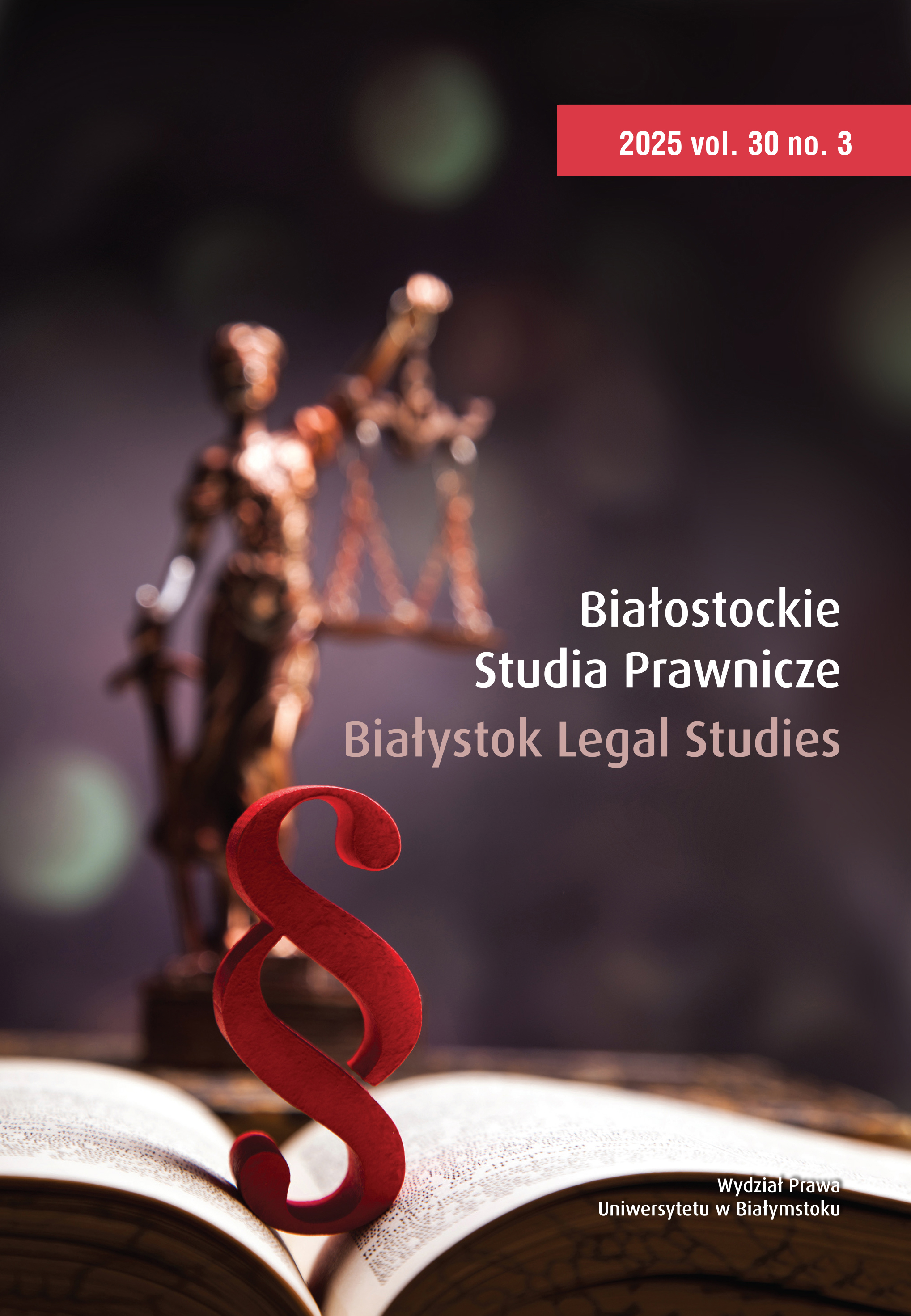The Admissibility of Blockchain-Based Solutions for Share Trading and Maintaining Shareholders’ Register in the Context of the Dematerialisation of Shares
Abstract
The mandatory dematerialisation of shares, which involves converting physical share certificates to electronic records, has unifi ed the trading framework for registered and bearer shares. This paper examines the impact of mandatory dematerialisation on the regulations governing the trading and registration of shares in non-listed joint-stock companies, where shares are registered in the shareholders’ register. Th e analysis is conducted in the context of modern technologies, such as smart contracts, distributed ledger technology and tokenisation, and their role in these processes. Th e authors refer to the possibility of concluding a share transfer agreement using smart contract technology and argue that, although maintaining a shareholders’ register in the form of a distributed and decentralised database is permitted, the provisions currently in force do not allow or fully enable the exploitation of the benefi ts available through blockchain technology, particularly the tokenisation of shares.References
Andhov, A. (2019). Corporations on blockchain: Opportunities and challenges. Cornell International Law Journal, 53, 1–40.
Armstrong, K. C. D., Hyde, D., & Th omas, S. (2019). Blockchain and cryptocurrency: International legal and regulatory challenges. Bloomsbury.
Bronowska, M., & Matraszek. J. (2020). Blockchain a rejestr akcjonariuszy. Przegląd Prawa Handlowego, 4, 23–29.
Dąbrowska, J. (2022). Cyfrowa rewolucja. Rozważania o ucyfrowieniu spółki akcyjnej w świetle koncepcji organizacji biurokratycznej Maxa Webera i założeń ekonomii instytucjonalnej. In A. Kidyba
& A. Olejniczak (Eds.), Nowoczesne technologie. Szansa czy zagrożenie dla funkcjonowania przedsiębiorców w obrocie prawnym i postępowaniach sądowych (pp. 13–36). Wolters Kluwer Polska.
Dybiński, J., & Weber A.-M. (2022). Mandatory dematerialization of shares in Polish private companies: A missed opportunity to do things right. European Company and Financial Law Review, 19(2), 203–238.
European Parliament. (1988, 19 May). Directive 98/26/EC of the European Parliament and of the Council of 19 May 1998 on Settlement Finality in Payment and Securities Settlement Systems (O. J. L
166, 11.06.1998).
European Parliament. (2014, 15 May). Directive 2014/65/EU of the European Parliament and of the Council of 15 May 2014 on Markets in Financial Instruments and Amending Directive 2002/92/ EC and Directive 2011/61/EU (O. J. L 173, 12.06.2014).
European Parliament. (2014, 23 July). Regulation (EU) no. 909/2014 of the European Parliament and of the Council of 23 July 2014 on Improving Securities Settlement in the European Union and on Central Securities Depositories and Amending Directives 98/26/EC and 2014/65/EU and Regulation (EU) no. 236/2012 (O. J. L 257, 28.08.2014).
European Parliament. (2018, 30 May). Regulation (EU) 2022/858 of the European Parliament and of the Council of 30 May 2022 on a Pilot Regime for Market Infrastructures Based on Distributed Ledger Technology, and Amending Regulations (EU) no. 600/2014 and (EU) no. 909/2014 and Directive 2014/65/EU (O. J. L 151, 02.06.2022).
Gołaczyński, J. (2024). Pojęcie i rodzaje umów elektronicznych. In J. Gołaczyński (Ed.), Prawo umów elektronicznych. Zarys systemu (pp. 1–70). Wolters Kluwer.
Governatori, G., Idelberger, F., Milosevic, Z., Riveret, R., Sartor, G., & Xu, X. (2018). On legal contracts, imperative and declarative smart contracts, and blockchain systems. Artifi cial Intelligence and Law, 26(4), 377–409.
Hadrowicz, S. (2020). Smart kontrakt jako umowa. Międzynarodowe Prawo Handlowe, 4, 32–42.
Hrabč ák, L., & Štrkolec, M. (2024). EU regulation of the crypto-assets market. Białostockie Studia Prawnicze, 29(1), 27–42.
Iansiti, M., & Lakhani, K. R. (2017). Th e truth about blockchain. Harvard Business Review, 95(1), 118–127.
Jiménez-Gómez, B. S. (2023). Distributed ledger technology in financial markets: The European Union experiment. Cuadernos de Derecho Transnacional, 15(2), 665–678.
Langer, M., & Pinior, P. (2023). Tokenizacja praw udziałowych w spółkach osobowych. Przegląd Ustawodawstwa Gospodarczego, 10, 9–17.
Maxwell, D., Speed, C., & Pschetz, L. (2017). Story blocks: Reimagining narrative through the blockchain. Convergence: Th e International Journal of Research into New Media Technologies, 23(1), 79–97.
Michalski, M. (2021). Dematerializacja akcji a realizacja uprawnień akcyjnych przez akcjonariuszy. In M. Michalski (Ed.), Powszechna dematerializacja akcji. Modernizacja konstrukcji spółki akcyjnej (pp. 231–271). Wolters Kluwer Polska.
Mizerski, D. (2022). Ustanowienie zastawu zwykłego oraz rejestrowego na akcjach w świetle przepisów o przymusowej dematerializacji. Przegląd Ustawodawstwa Gospodarczego, 10, 46–51.
Mmereole, J. (2023). Zawarcie umowy przez inteligentne oprogramowanie – smart kontrakty. Prawo Nowoczesnych Technologii, 1, 30–35.
Obrist, T., & Pfi ster, R. A. (2019). Tax treatment of cryptocurrency holders and miners in the era of virtual currencies from a multijurisdictional and Swiss perspective. In D. Kraus, T. Obrist, & O. Hari (Eds.), Blockchains, smart contracts, decentralised autonomous organisations and the law (pp. 299–348). Edward Elgar.
Opalski, A. (2019). Prosta spółka akcyjna – nowy typ spółki handlowej (część I). Przegląd Prawa Handlowego, 11, 5–15.
Pabis, R. (2022). Commentary to Article 328(4). In Z. Jara (Ed.), Kodeks spółek handlowych. Komentarz (pp. 1680–1750). C. H. Beck.
Panisi, F., Buckley, R. P., & Arner, D. (2019). Blockchain and public companies: A revolution in share ownership transparency, proxy-voting and corporate governance? Stanford Journal of Blockchain Law & Policy, 2(2), 1–32.
Pecyna, M., & Behan, A. (2020). Smart contracts – Nowa technologia prawa umów? Transformacje Prawa Prywatnego, 3, 187–216.
Pinior, P., & Langer, M. (2024). Tokenizacja akcji i innych praw udziałowych w spółkach kapitałowych. Przegląd Ustawodawstwa Gospodarczego, 10, 2–9.
Popiołek, W. (2020). Rozporządzanie akcjami rejestrowymi spółek niepublicznych. Przegląd Ustawodawstwa Gospodarczego, 5, 2–13.
Popiołek, W. (2024). Commentary to Article 328(4). In P. Pinior and J. A. Strzępka (Eds.), Kodeks spółek handlowych. Komentarz (pp. 867–869). C. H. Beck.
Priam, R. (2022). A European distributed ledger technology pilot regime for market infrastructures: Finding a balance between innovation, investor protection and fi nancial stability. Journal of Financial Regulation and Compliance, 30(3), 371–390.
Raskin, M. (2017). Th e law and legality of smart contracts. Georgetown Law Technology Review, 1(2), 305–341.
Sejm of Poland. (1966). Civil Code of 23 April 1964 (consolidated text, Journal of Laws of 2024, item 1061, as amended).
Sejm of Poland. (1996). Act on Registered Pledges and Register of Pledges of 6 December 1996 (consolidated text, Journal of Laws of 2018, item 2017, as amended).
Sejm of Poland. (2000). Commercial Companies Code of 15 September 2000 (consolidated text, Journal of Laws of 2024, item 18, as amended).
Sejm of Poland. (2005). Act on Trading in Financial Instruments of 29 July 2005 (consolidated text, Journal of Laws of 2024, item 722, as amended).
Sejm of Poland. (2019). Act Amending the Commercial Companies Code Act and Certain Other Acts of 30 August 2019 (consolidated text, Journal of Laws of 2019, item 1798, as amended).
Sejm of Poland, 2019. (2019). Justifi cation of the government’s draft act amending the Commercial Companies Code and certain other acts, print no. 3541. Retrieved 18 November 2024, from URL: https://orka.sejm.gov.pl/Druki8ka.nsf/0/38BFA72164FE8069C125841D00436FE7/%-24File/3541.pdf
Sobociński, F. (2022). Zastaw rejestrowy na akcjach spółki niepublicznej – problem konfliktu wpisów konstytutywnych. Przegląd Prawa Handlowego, 8, 30–36.
Sójka, T. (2020). Obrót akcjami prostej spółki akcyjnej. Przegląd Prawa Handlowego, 1, 5–11.
Sójka, T. (2021). Rejestr akcjonariuszy w postaci rozproszonej i zdecentralizowanej bazy danych. Przegląd Ustawodawstwa Gospodarczego, 4, 26–33.
Stocker, P. (2023). Th e potential of blockchain technology for share transfers in nonlisted companies in Switzerland and the United Kingdom. European Business Organization Law Review, 24, 439–470.
Szabo. N. (1997). Formalizing and securing relationships on public networks. First Monday, 2(9).
Szczerbowski, J. J. (2018). Sprytne kontrakty a prawo umów – wprowadzenie. Edukacja Prawnicza, 2, 5–9.
Szostek, D. (2018). Blockchain a prawo, C. H. Beck.
Van der Elst, C., & Lafarre, A. (2018). Blockchain technology for corporate governance and shareholder activism [Law working paper 390]. European Corporate Government Institute.
Van der Elst, C., & Lafarre, A. (2019). Blockchain and smart contracting for the shareholder community. European Business Organization Law Review, 20, 111–137.
Verstappen, J. (2023). Legal agreements on smart contract platforms in European systems of private law.
Springer.
Załucki, M. (2024). Technologia blockchain i smart contracts a perspektywa prawa prywatnego
międzynarodowego jako wyzwanie dla ustawodawcy. Przegląd Prawa Publicznego, 11, 20–37.



